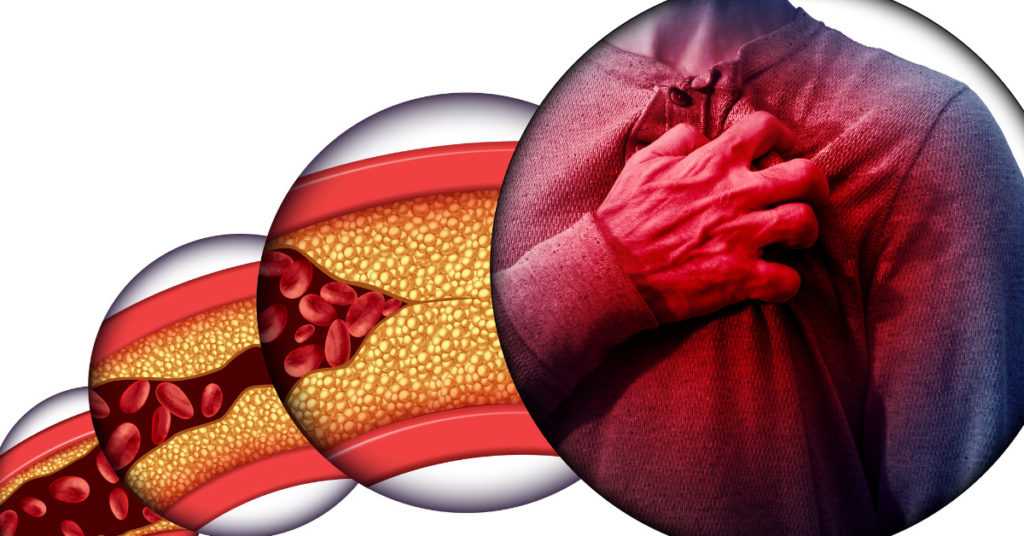Heart diseases like heart attacks are the leading cause of death in Pakistan. The ratio of these diseases is exceptionally high in men as compared to women. The worst part is that symptoms of most heart diseases remain silent and go unnoticed, which results in sudden deaths. Therefore, it is essential to know the signs and risk factors for heart disease.
What is Heart Disease?


The term “heart disease” is used to describe any disorder of the cardiovascular system. It is one of the most important systems of our body and consists of the heart and blood vessels. Heart disease is also known as cardiovascular disease, coronary heart condition, and coronary artery disease. Some of the common heart diseases include:
- Cardiovascular disorder
- Heart attack
- Stroke
- Heart Arrhythmias
- Heart Valve Disease
- Heart failure
Symptoms of Heart Disease
Heart disease is also known as a “silent killer.” This condition is not diagnosed until you show signs of a heart attack or heart failure. Symptoms of heart disease vary depending on the particular cause, but they all have a few common ones. For example:
- Fast or slow heartbeat
- Dizziness
- Fainting
- Chest pains (angina)
- Shortness of breath
- Pain in left arm or leg
- Weakness or fatigue
- Fluttering in your chest
If you or anyone around you has even one of these symptoms along with other risk factors. Then, you must visit a cardiologist. You can now book an online appointment with the Best Cardiologists in Pakistan via Marham.
Risk Factors of Heart Disease
As mentioned above, heart disease symptoms do not show at the beginning of the disease but after it has reached a dangerous stage. It is why everyone needs to know about the risk factors for heart disease so you can take precautions. So, let’s look at some of the common ones:
1. Age and Gender
According to the American Heart Association, age is a major non-modifiable factor for developing heart disease. Menage 45 or older and women age 55 or older are more likely to get heart failure than younger men and women. Most fatal heart attacks occur in people 65 and older. Men are more likely to develop heart problems; you must have observed this yourself as well.
2. Smoking
Smoking and passive smoking which is second-hand exposure to smoke, increases the chance of an attack. Most people are aware that smoking raises the possibility of lung cancer. But, few are aware that it also significantly increases your risk of heart disease and peripheral vascular disease. Many people die due to smoking-related diseases every year. If you are someone who smokes regularly and has symptoms of heart disease, it is recommended to get a health check-up as soon as possible.


3. High Blood Pressure
Over time, high blood pressure can damage arteries that give your heart blood and accelerate atherosclerosis. It increases your chances of developing heart disease, having a heart attack, or having a stroke. High blood pressure accompanied by obesity, smoking, increased cholesterol level, or diabetes increases your risk even more. Blood pressure can vary depending on activity and age, but a healthy adult’s resting blood pressure should be 120/80.
4. High Blood Cholesterol or Triglyceride Levels
High blood cholesterol is a crucial risk factor for heart disease. Extra cholesterol enters your body when you consume too many animal-derived meals or foods high in saturated fat. For example, red meat, eggs, processed foods, and dairy products. When there is too much low-density lipoprotein LDL or “bad cholesterol” in the blood, plaque forms on the artery walls, triggering the disease process known as atherosclerosis. When plaque accumulates in the coronary arteries that carry blood to the heart, you are more likely to have a heart attack.
5. Diabetes
Insulin, a hormone secreted by your pancreas, permits your body to use glucose, a form of sugar. Having diabetes, not producing enough insulin, or not responding to insulin agents properly causes your body’s blood sugar levels to rise. Having diabetes creates a buildup of sugar in your blood. Adults with diabetes have a higher chance of dying from heart disease. Consult your doctor about strategies to prevent or manage diabetes and how to manage other risk factors too.


6. Family History of Heart Failure
If your siblings, parents, or grandparents have had early heart attacks, you can be at high risk for heart disease. High blood pressure, heart disease, and other related disorders are all influenced by genetic factors. When inheritance is combined with poor lifestyle choices such as eating a high-fat diet, the risk of heart disease increases even more. It is sad, but this factor is not changeable, so you must limit your exposure to other factors like smoking or stress.
7. Lack Of Physical Activity
Exercise burns calories, which helps maintain a healthy weight, manage cholesterol and diabetes and lower blood pressure. Exercise also strengthens the cardiac muscle and increases the flexibility of the arteries. Even moderate-intensity exercise is beneficial if done regularly. So, inactive people have a higher risk of having a heart attack than those who exercise regularly. Therefore, you must make exercise a regular part of your life to live longer.
8. Obesity
Being overweight and obese can cause heart problems as well. People with excess body fat, especially around the belly, are more likely to develop heart disease and stroke. Obese adults usually also have high blood pressure, high cholesterol, or high blood sugar. This factor alone is the worst risk factor for heart disease. However, you can lose weight and significantly reduce the risk of getting heart disease.


When to Visit a Heart Specialist?
Seek medical attention if you’ve got any signs of the heart problem mentioned above. It’s essential to address symptoms early since heart disease can be fatal. Feel free & Log On to our website for your medical queries answered by professional heart doctors. Click here to find the Best Cardiologist in Lahore, Karachi, Islamabad & other main cities of Pakistan.
You can also book an appointment through Marham by calling the Marham helpline: 0311-1222398 or by online booking facility through the website or Marham mobile app.
Can’t Find The App?
Android Users:
https://play.google.com/store/apps/details?id=controllers.marham.marhammed&hl=en
Drop a review for us at Playstore if you’ve had a good experience!
iPhone Users:
https://apps.apple.com/pk/app/marham-find-a-doctor/id1095243102

